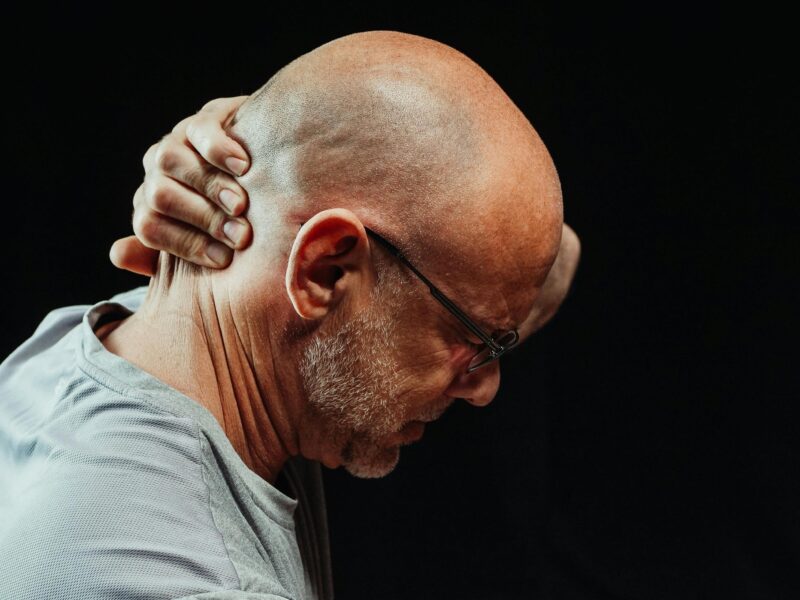Living with chronic pain is difficult enough—but when addiction enters the picture, it becomes even more complex. Across Mississippi, individuals suffering from long-term pain often find themselves dependent on substances originally prescribed to help them. At Mississippi Drug and Alcohol Treatment Center (MSDATC), we recognize the close relationship between chronic pain and addiction—and we offer solutions that bring lasting relief without further harm.
Why Chronic Pain and Addiction Often Go Hand in Hand
Chronic pain is one of the most common reasons people begin using prescription medications. Unfortunately, it’s also one of the most common paths into addiction. When people rely on substances to manage persistent physical pain, the body and brain can develop a dependency—often before the person realizes what’s happening.
The Rise of Prescription Opioids and Long-Term Dependency
For decades, prescription opioids were the go-to treatment for chronic pain. Medications like oxycodone, hydrocodone, and morphine were widely prescribed to patients suffering from arthritis, back injuries, fibromyalgia, or post-surgical pain. Unfortunately, these powerful painkillers are also highly addictive.
Over time, many patients developed a tolerance—needing higher doses for the same relief. This often led to physical dependence, and in some cases, full-blown addiction. What began as medical treatment became a dangerous cycle.
The Mississippi Reality: Pain, Poverty, and Limited Access
Mississippi faces unique challenges. Many residents in rural areas lack access to comprehensive healthcare, physical therapy, or pain specialists. This can lead to an overreliance on medication as the only form of relief. Chronic pain is more common in populations affected by poverty, manual labor, and limited preventive care.
For those caught between physical pain and the fear of addiction, it can feel like there’s no safe option. That’s where MSDATC steps in—with an approach that addresses both problems together.
Risks of Treating Pain with Addictive Substances
How Opioids Change the Brain and Fuel Addiction
Opioids alter the brain’s reward system. They flood the brain with dopamine, creating temporary euphoria. Over time, the brain reduces its own natural endorphin production, making individuals more sensitive to pain and emotionally dependent on the drug.
This neurological shift can happen subtly. People who use opioids for legitimate pain may not realize they’re becoming addicted until withdrawal symptoms or compulsive use emerge.
Warning Signs of Addiction in Pain Patients
Common red flags that pain management has crossed into addiction include:
- Taking higher doses than prescribed
- Using opioids for emotional relief, not physical pain
- Running out of medication early
- Visiting multiple doctors or pharmacies
Recognizing these signs early is crucial for preventing long-term harm.
Treating Chronic Pain Without Fueling Addiction
Evidence-Based Alternatives That Work
Fortunately, there are effective, non-addictive ways to treat chronic pain. MSDATC helps patients explore safer therapies such as:
- Cognitive Behavioral Therapy (CBT): Teaches strategies for reframing pain perception and improving emotional regulation
- Mindfulness-Based Techniques: Meditation and awareness practices reduce stress and interrupt the pain-addiction loop. See our article: Can Mindfulness or Meditation Help Manage Triggers?
- Physical Rehabilitation: Supervised exercise, massage, and movement therapy can reduce inflammation and restore function
- Nutritional and Holistic Interventions: Anti-inflammatory diets, sleep hygiene, and acupuncture support whole-body wellness
Medication-Assisted Treatment (MAT) in Complex Cases
For patients struggling with both pain and addiction, Medication-Assisted Treatment (MAT) may be part of the solution. Medications like buprenorphine or methadone can help stabilize brain chemistry and reduce cravings—while allowing for safer pain control.
At MSDATC, MAT is only offered as part of a complete program that includes therapy, education, and long-term recovery planning.
MSDATC’s Integrated Approach to Chronic Pain and Addiction
Personalized Treatment Plans for Dual Diagnosis
Our clinical team is experienced in treating both physical pain and substance use disorders. We develop individualized care plans that:
- Address the root causes of pain and addiction
- Use trauma-informed, evidence-based therapy
- Combine medical care with emotional support
If you’re suffering from both conditions, our Dual Diagnosis Treatment approach ensures you receive comprehensive care.
Whole-Person Recovery: Mind, Body, and Environment
We believe healing goes beyond medication. Our programs include:
- Group Therapy: Build connection and resilience in a supportive setting. Learn more: What Are the Benefits of Participating in Group Therapy?
- Family Education and Support: Help your loved ones understand what you’re facing and how to help
- Mindfulness and Lifestyle Therapy: Learn techniques to manage both pain and emotional triggers without relying on substances
By addressing the full person—not just the symptoms—we help clients build a sustainable path forward.
When to Seek Help for Chronic Pain and Addiction
It might be time to seek treatment if:
- You rely on pain medication daily and fear going without it
- You feel anxious, depressed, or isolated due to your pain
- You’ve increased your medication use over time
- You feel ashamed or secretive about your substance use
Chronic pain and addiction can be managed—but not in isolation. Seeking help is the first step toward reclaiming your life.
For guidance on safe pain management, see the CDC’s updated guidelines on chronic pain treatment.
Start Healing at Mississippi Drug and Alcohol Treatment Center
At Mississippi Drug and Alcohol Treatment Center, we understand how deeply chronic pain and addiction are connected. We don’t force you to choose between suffering and substance use—we help you find a third option: real, lasting relief.
If you’re ready to explore a safer, more effective way to manage pain and reclaim your life, reach out now. Our team is here to support you with compassion, clarity, and care.
(855) 334-6120
MississippiDATC.com
13251 Reece Bergeron Road, Biloxi, MS 39532


 Benzo Withdrawal: Symptoms, Timeline, and Safe Treatment in Mississippi
Benzo Withdrawal: Symptoms, Timeline, and Safe Treatment in Mississippi